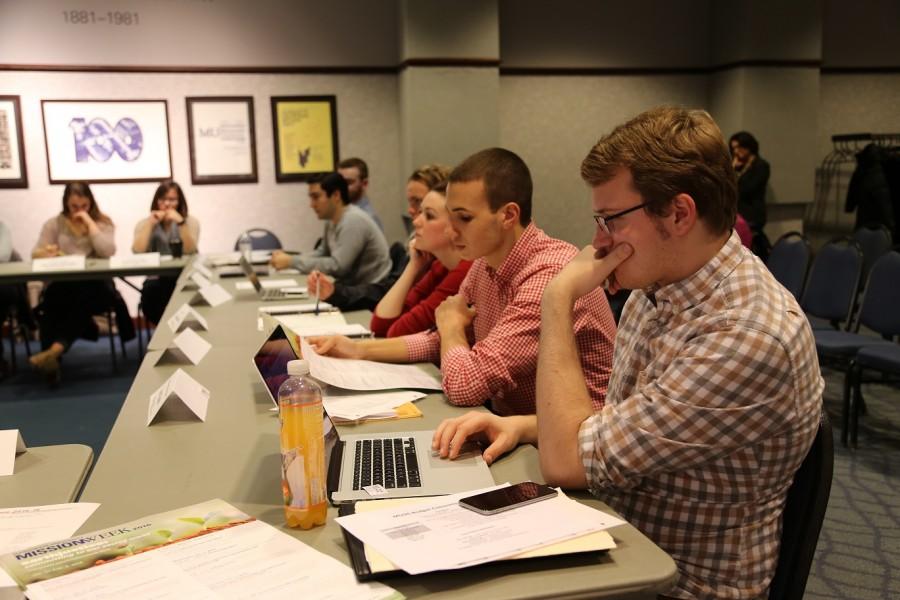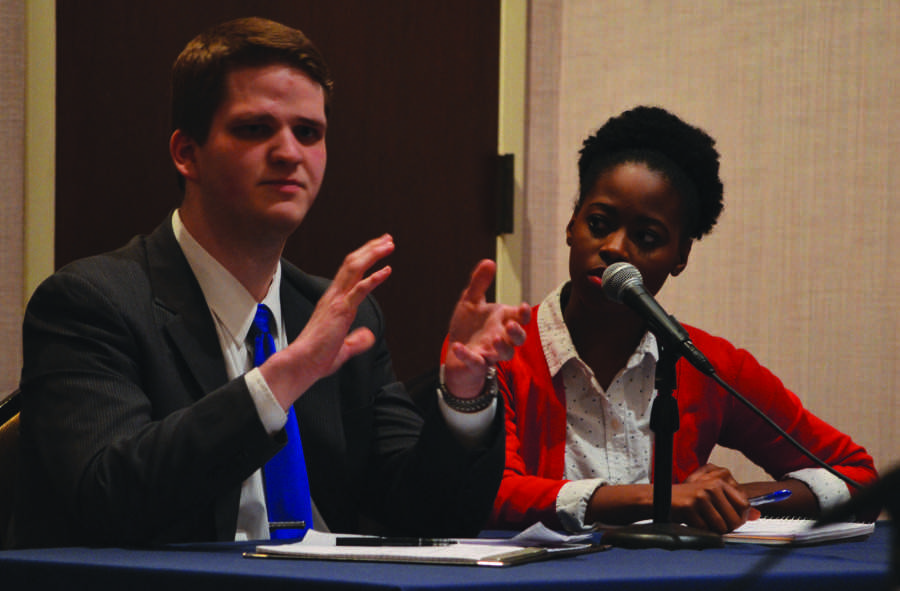After students vote for next year’s Marquette Student Government president and executive vice president on Thursday, new students will receive the stipends and benefits those jobs provide.
MUSG president Kyle Whelton, a senior in the College of Arts & Sciences, and the executive, legislative, program and communication vice presidents receive $2,300 a year. Whelton also receives full tuition.
Financial Vice President Ted Eberle earns $700 more than his executive board peers for his summer financial work.
For their time spent working as MUSG officers, non-senate MUSG members are university employees. They receive payment in the form of stipends or hourly wages that are determined by the Office of Finance and reviewed yearly for each role.
MUSG members who do not hold senate leadership positions do not receive additional scholarships or grants but have the opportunity to apply for internship credit within their particular colleges. MUSG has notably worked with the College of Communication and College of Business Administration, which offer up to three credits each semester.
Communication directors consist of two vice presidential seats and three directors handling creative, multimedia, public relations and program board coordinators, which include two vice presidential seats. The latter department’s members make a $1,250 stipend whereas the former position receives a $1,000 stipend.
Other members of MUSG staff are paid hourly. Certain internal affairs handlers, including the financial controller and administrative assistant, earn $7.50 an hour. Financial Controller Tim Hoogaboom conducts MUSG payroll, checking, financial reports and documentation. The Administrative Assistant Taylor Huppert manages the MUSG office and its receptionists.
MUSG employees who hold clerk titles, including receptionist, legislative clerk and financial office assistant, receive 25 cents less per hour than their supervisors.
Brittany Phelps, an MUSG receptionist, spoke positively about the income she earns as a university employee. Tasked with handling phone calls and errands, she enjoys the workplace and its flexible schedule filled with shift-swapping opportunities.
“I think it’s very fair,” Phelps said about her compensation. “I’m a fairly frugal person to begin with … (but) believe me, whenever someone is trying to get rid of a shift, I always like the extra money, so its nice (to take extra shifts).”
Nearby universities have differing policies on compensation for student government members. The University of Wisconsin-Madison allots different percentages of tuition scholarship for each leadership position in the Associated Students of Madison.
DePaul University, however, compensates its student government members through application-based leadership scholarships offered by its Office of Student Involvement, whose budget lies outside of its student government budget.








